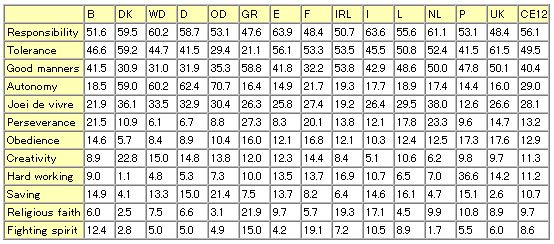New technologies, and particularly communicational technologies, are offering us new powerful tools to improve our ways of living. Some European authors have been recently re-analyzing and underlining how some of such tools may allow us to establish relationships in new ways. In fact, new ways of relating and communicating with others are already happening. Bressand & Distler (1995), French members of the well-known Prometheus think-tank, have been discussing the importance of the new ways of networking-relationships.
Globalization phenomena are showing not only new and virtual spaces in the world (the cyberspace, the global village). They are also showing new relational possibilities, and a "new" relational planet (Bressand & Distler, 1995).
Networking supported by new interactive technologies, like Internet, according to these authors, can be analyzed on their 3 major components: infra-structure, info-structure, and infoculture. Infoculture in networks depends on certain consensus among members to work together in projects of common interest: confidence is needed, and also shared expectations and customs. For Bressand & Distler (1995) Internet can be considered a relational machine, a powerful tool to improve our relationships and direct them to common projects.
Children are very often surprisingly creative and adaptive. In Internet, I*EARN network has facilitated communication among children of different countries, speaking different Latin-rooted languages (Spanish, Italian, French, Portuguessian, Catalan, Rumanian). We, adults usually ask for translators to develop inter-linguistic debates; children have demonstrated to manage very well without any translation!
In fact, networking is a human activity very old in history. But its importance has been underlined only very recently, because communication technologies have opened powerful new possibilities of international networking, careless of physical distances. Networking has advantages and disadvantages in front of old ways of organization. The emphasis is much less in the structure, and much more in the flexibility, in communication among people, in adapting quickly to new opportunities. Such characteristics suit very well with children's and youngsters' way of acting; they feel confortable with them.
Social and technological changes have raised new question marks about the direction of the changes we really want in our societies. That means that new important debates on values have appeared the last few decades in Europe, and some of them are closely related with children's and youngster's socialization.
In one of the European Eurobarometre surveys with representative samples of all countries of the European Union (Commission of the European Communities, 1990), it appeared that adults of almost all of them think that values that must be the most promoted among children are responsibility and tolerance. Some traditionally highly appreciated values, as working hard, saving, religious faith or fighting spirit was much lower in the ranking.
Table 1: Values that must be the most promoted among children in the European Union
In other arenas, particularly those more politically or macro-socially oriented, it seems that at present in Europe one of the outstanding values, pushing up in the scene, is quality of life. I am going to speak about it with more detail. As a value, quality of life is pointing out a new kind of goals: those convincing material and non material values, those trying to improve at the same time material and non material situations in society.
Last, but not least, in the context of the debates on social justice, solidarity, and fighting social exclusion processes, to reduce the gap between rich and poor and socially excluded seems to be another social goal with increasing consensus among citizens in the European countries. That includes such gaps inside our countries, and at international level, between industrialized and developing countries. In our case, the relevant questions are: how such gaps influence children and child development? What future we want to work for children at international level? How to take advantage of children's motivation for new technologies and communicational media to diminish such gaps and to increase good relationship among people of our planet?
More and more new realities, our new worlds, are related with the need of renovated ethical debates. That is already happening in medical sciences (genetical engineering, bio-technologies adapted to human beings, and so on). When we think on children's socialization, a big question mark was raised by the Childhood Policies Project of the Council of Europe: How can we educate children to be responsible in new situations, in front of new problems or of new ethical dilemmas, if many of their aspects are unknown to us? How to preserve, at the same time, the values of democracy, tolerance, peace, solidarity...
One of the tentative answers debated in Europe has been to facilitate more social space -and to improve the existing ones- in which children can really be, in practice, more participative and responsible. Responsibility, democracy, peace, and many other social values cannot be learned theoretically, listening to nice speeches. In order to acquire practical experience children should be listened and taken seriously in debates related with improving the city, the neighborhood or any other social space affecting them. In coherence with the Convention on the Rights of the Child, we have been debating how to improve children's social participation in European society, and a project of Recommendation to improve children's social participation in European countries is at present waiting to be debated by our Ministers (Council of Europe, 1996).















